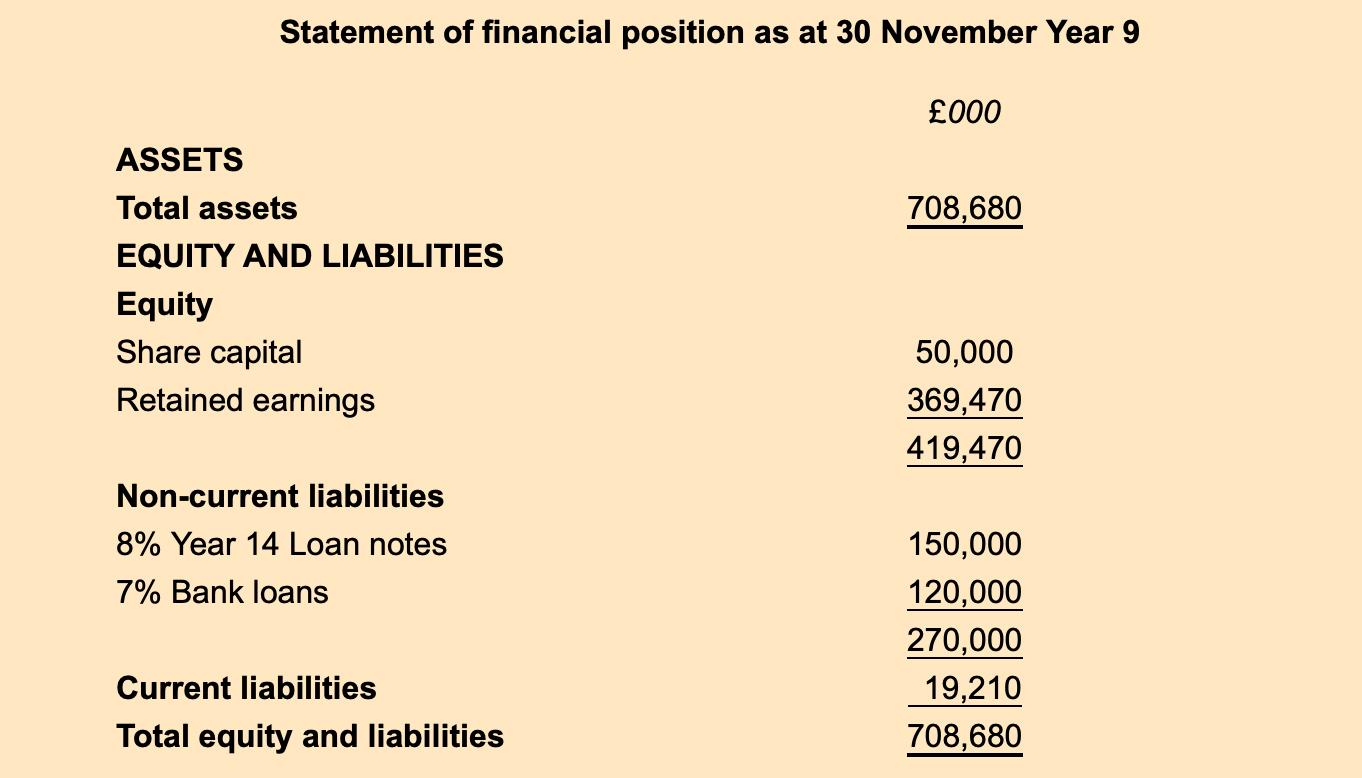Question
Ndovu plc is considering investing in a new project and, in the past, it would have used a cost of capital of 10 per cent
Ndovu plc is considering investing in a new project and, in the past, it would have used a cost of capital of 10 per cent as the discount rate to assess new projects. This rate had been calculated by a team of consultants about seven years ago. However, the business feels that it would like to re-calculate its cost of capital, based on its current capital structure. This will be used as the discount rate for future projects.
A summary of Ndovu plc’s latest statement of financial position for the year ended 30 November Year 9 is given below, together with additional information:
Statement of financial position as at 30 November Year 9

Each share has a nominal value of £0.25 and Ndovu plc’s P/E ratio is 11. It is the business’s policy to have a dividend payout ratio of 40 per cent and the most recently declared dividends for the year to 30 November Year 9 were £0.18 per share. The rate of increase of the dividends has been stable over the past five years, increasing from £0.14 per share to the current rate. The risk-free rate of return is currently estimated as 5 per cent and the market return is estimated to be 10 per cent. Ndovu plc’s most recent beta was given as 0.75.
The loan notes are redeemable in exactly five years at par and are currently trading at £103 per £100. Both the loan notes and the bank loan are secured on the non-current assets of Ndovu plc.
Ndovu plc pays tax at 25 per cent and tax is payable in the year incurred.
Required:
(a) Calculate Ndovu plc’s cost of equity using both the capital asset pricing model (CAPM) and the dividend growth model, and explain why the two methods give different answers.
(b) Calculate Ndovu plc’s weighted average cost of capital, based on the CAPM computed cost of equity.
(c) Discuss the appropriateness of using the weighted average cost of capital calculated in part (b) above as Ndovu plc’s discount rate.
Statement of financial position as at 30 November Year 9 000 ASSETS Total assets 708,680 EQUITY AND LIABILITIES Equity Share capital 50,000 Retained earnings 369,470 419,470 Non-current liabilities 8% Year 14 Loan notes 150,000 7% Bank loans 120,000 270,000 19,210 708,680 Current liabilities Total equity and liabilities
Step by Step Solution
3.40 Rating (147 Votes )
There are 3 Steps involved in it
Step: 1
a Cost of Equity Using CAPM we get expected return of equity based on systematic risk nonspecific risk and using DGM method we get discounted values o...
Get Instant Access to Expert-Tailored Solutions
See step-by-step solutions with expert insights and AI powered tools for academic success
Step: 2

Step: 3

Ace Your Homework with AI
Get the answers you need in no time with our AI-driven, step-by-step assistance
Get Started


